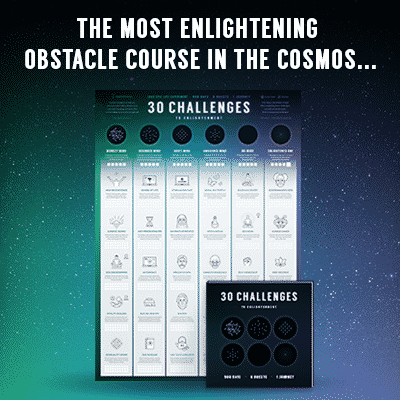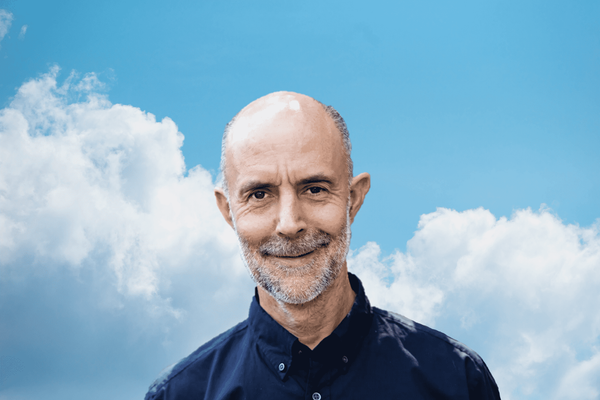Jordan Bates • • 3 min read
The Enemy of Enlightenment: A Crucial Life Lesson I Re-Learned Through Meditation

While meditating earlier today, I experienced something of an epiphany, a powerful realization.
I was doing my normal meditation thing, following the sensation of my breath as it flowed in and out of my nostrils, when it dawned on me.
A lesson I thought I learned years ago, but which seems to be one I must continuously relearn and reintegrate.
The realization can be summarized in six words:
Elitism is the enemy of enlightenment.
I realized that I often have an unjustifiably low amount of patience for ways of thinking and ways of being that I perceive myself to have “overcome.” That is, when I see people thinking and behaving in ways that I used to think and behave, I am quick to wonder, “How is it possible they haven’t yet realized the flaws and limitations of that mode of being/thought?”
For example, I might feel mildly repelled upon seeing someone donate to a charity that hasn’t been proven by the effective altruism movement to be among the world’s most effective charities. Or, I might roll my eyes internally upon hearing someone imply that making a lot of money is an evil thing, because I now conceive of capital as an efficacious tool for world-improvement after witnessing billionaires like Elon Musk and Bill Gates utilize their profits to impact the Earth in profoundly positive ways.
In other words, I can be prematurely dismissive—a bit of an elitist. This is terribly ironic, considering that in many cases it took me years to “overcome” whatever way of thinking or being I’m dismissing, and considering that I lack conclusive evidence that my current ways of thinking/being are actually superior to those other ways.
It seems that when I encounter new ways of thinking/being that I haven’t experienced/adopted personally, I am far more tolerant and curious, interested to learn as much as I can from these newfound expressions of humanity. However, when I encounter expressions that I believe I’ve already “tried on” and discarded, I immediately assume that I had good reason to discard them.
Which isn’t necessarily true. I’m sure the person I was a few years ago could teach me plenty of things that I’ve forgotten, if I would simply be open to his different ways of approaching the world. And even if it is true that my current self is superior to my prior self, that is certainly no reason to dismiss the prior version of me. Nor is it reason to dismiss anyone who thinks/lives in ways similar to my prior self.
We are all learning in our own ways and at our own paces. Openness, non-dismissiveness¹, humility, and patience seem absolutely paramount, if we truly wish to learn from all whom we encounter, love people for who they are and where they’re at, and gain some modicum of wisdom in this lifetime.
Elitism is the enemy of enlightenment. I thought I understood this years ago, but again, it seems to be one of those lessons I must intermittently rediscover.
I’m reminded of this passage from Kahlil Gibran’s The Prophet, which seems a fitting note to end on:
“You are good in countless ways, and you are not evil when you are not good,
You are only loitering and sluggard.
Pity that the stags cannot teach swiftness to the turtles.
In your longing for your giant self lies your goodness: and that longing is in all of you.
But in some of you that longing is a torrent rushing with might to the sea, carrying the secrets of the hillsides and the songs of the forest.
And in others it is a flat stream that loses itself in angles and bends and lingers before it reaches the shore.
But let not him who longs much say to him who longs little, ‘Wherefore are you slow and halting?’
For the truly good ask not the naked, ‘Where is your garment?’ nor the houseless, ‘What has befallen your house?'”
If you want to build a stable meditation practice and become a wiser person…
Our new course is for you:
30 Challenges to Enlightenment

Footnotes:
- Upon further consideration, there are some circumstances in which I think one is justified in dismissing another’s way of thinking/being. For instance, I have no qualms about dismissing the views of a jihadist who thinks all who disbelieve in Allah must be destroyed. However, one can still retain compassion for such people, recognize their humanity, and strive to understand the circumstances and psychology that have resulted in their radical views.

Jordan Bates
Jordan Bates is a lover of God, father, leadership coach, heart healer, writer, artist, and long-time co-creator of HighExistence. — www.jordanbates.life










